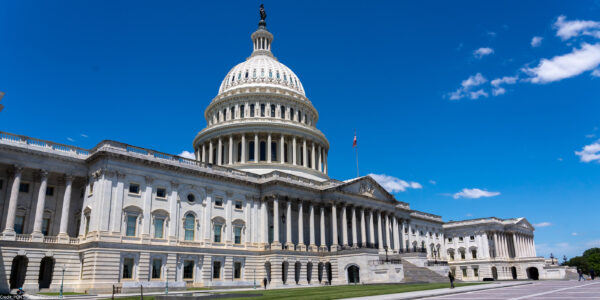March Madness: Tennessee Legislature Takes Another Shot at Undermining Evolution Education


March may mean only one thing — the NCAA tournament — for basketball fans, but for Tennessee legislators, March means the revival of a state tradition that is not so worthy of celebration: attacking the teaching of evolution in public schools. A proposed law currently under consideration by the Tennessee legislature seeks to gut science education by purporting to give public school teachers the freedom to help students think critically about the scientific theory of evolution through a review of its "strengths" and "weaknesses."
If this sounds familiar, it's because the Tennessee legislature tried to pass a nearly identical bill last March. Along with science educators, the business community (which wants to ensure an informed and employable Tennessee citizenry), and other civil liberties groups, the ACLU and the ACLU of Tennessee vigorously opposed the measure. As we explained in testimony about the bill, blog posts, and other public education pieces, there is simply no controversy in the legitimate scientific community over the validity of evolution. School science curricula already foster students' critical thinking skills; and the "weaknesses" that proponents of the bill hope teachers will discuss are recycled claims — consistently and resoundingly rejected by scientists — that have been made for years by creationism and intelligent design advocates.
In passing the bill out of the Senate Education Committee yesterday, legislators claim they have fixed the language so it is no longer problematic, but a simple comparison of last year's bill and the current measure shows that all the bill's sponsors have done is consulted a thesaurus. Instead of characterizing evolution as a "scientific controversy" that requires further critical analysis, the bill now deems evolution a "scientific subject[] that may cause debate and disputation," and that, therefore, requires further critical analysis. That's right — the grand legislative "fix" merely replaces the word "controversy" with its synonyms, "debate" and "disputation." There are no other substantive changes to the proposed law and it would have the same disastrous consequences for science education as the measure defeated last year.
The Tennessee Legislature has an unsavory and embarrassing history when it comes to evolution education, including the Butler Act, which was signed into law in (you guessed it) March of 1925 and led to the Scopes Monkey Trial. Other attacks on evolution education in Tennessee and across the country have repeatedly failed to pass muster under the law. We can't help but wonder what it will take to make state legislators understand that undermining the teaching of evolution in order to promote religious beliefs like creationism and intelligent design in public schools is simply unconstitutional.
And then it hit us: Maybe we just aren't using the right word to explain it. So, in case any confusion remains, Tennessee legislators take note: Under the Establishment Clause of the First Amendment to the U.S. Constitution, your repeated attacks on evolution education are unlawful, illegal, illicit, impermissible, unauthorized, improper, prohibited, barred, lawless, banned, illegitimate, forbidden, unsanctioned, proscribed, and (something to always keep in mind) actionable. See, we have a thesaurus too, and we are not fooled when the legislature plays semantics with constitutional violations. Whether you call it teaching the "controversy," the "debate," the "disputation," or any other variation on those terms, we know what the endgame is, and, in our brackets, we are still betting on the Constitution.
Learn more about religion in schools: Sign up for breaking news alerts, follow us on Twitter, and like us on Facebook.



